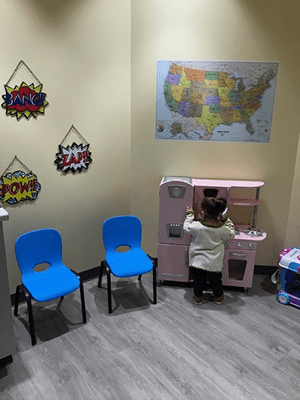Recovery Starts Here
You don’t have to leave the Quad Cities to benefit from world-class medical expertise and treatment breakthroughs. In fact, you don’t even have to leave your computer. You can view appointments, view documents, test results, request an appointment and contact your health care team – all in one convenient online location.

Patient Portal
Login to:
- Send a message to your physician or care team
- View your scheduled appointments
- View your lab results

Online Bill Pay
We provide this service to you at no charge so you can access and pay your medical bills online conveniently and securely.
New Study Determines Cancer Care Delivered in Hospital Outpatient Setting Much More Expensive Than in Independent, Community Oncology Practices
Chemotherapy 71% more expensive, Physician visits 333% more expensive, and Patients have higher rates of Emergency Department visits when treated in Hospital Outpatient Setting
Data consistent across tumor types, including Breast, Lung, and Colorectal Cancers
A new study was released by the Community Oncology Alliance (COA) finds that the total cost of care for cancer patients receiving chemotherapy delivered in the hospital outpatient setting is nearly 60%, or $90,144 per year, more expensive than the same treatment delivered in independent, community oncology practices. Additionally, cancer patients treated in the hospital setting are more likely to visit the emergency department (ED) following treatment.
Across all cancers, the analysis demonstrated that total cost of care for a patient receiving chemotherapy within the hospital outpatient setting was 59.9% higher, or $7,512, more expensive per month than for those patients treated in the community practices ($20,060 vs. $12,548). The biggest drivers for the cost differential were the cost of chemotherapy which was 71% higher, or $3,510, more expensive per month in the hospital setting ($8,443 vs. $4,933), and the cost of physician visits, which were 333% higher, or $2,551, more expensive in the hospital setting than in the community practices ($3,316 vs. $765).
The report looked at specific data for total cost differentials by type of cancer for breast, lung, and colorectal cancer patients. The data was consistent in showing that costs for these cancers were significantly higher for cancer care delivered in the hospital outpatient setting than in the community practices. Specifically, the researchers found that for:
-
Breast cancer, the total cost of care was 66% higher, or $7,680, more per month higher in the hospital setting than in the community setting
-
Colorectal cancer, the total cost of care was 46% higher, or $7,264, more per month in the hospital setting than the community setting.
The higher costs of cancer care in the hospital outpatient setting appear to be primarily driven by the increased cost of both chemotherapy and physician visits. The results were maintained regardless of whether a branded, generic, or combination of brand and generic chemotherapy drugs were used.
The study, “The Value of Community Oncology: Site of Care Cost Analysis” was conducted by Lucio Gordan, MD, Medical Director in the Division of Quality & Informatics at Florida Cancer Specialists & Research Institute, and Xcenda, a global health economics consultancy.
“As a physician, I am constantly concerned about the financial toxicity of cancer care. It is disappointing again to see data that hospital-based cancer care is considerably more expensive than the community practices. While, at the same time, more patients are being forced into hospitals,” said Dr. Gordan. “Providers, payers, policymakers, and patients need to take a long hard look at the impact that site of care has on cancer patients, not just in terms of the cost, but also outcomes, quality of care, and satisfaction. It is clear that the community oncology setting should be the preferred, first choice treatment setting for cancer patients.”
The findings of this study were consistent with at least 10 previous studies between 2011 and 2016 that found the average cost of cancer care was 38% higher for patients treated in hospital outpatient settings compared with those treated in the community practices. This new study expands upon the cost differential findings of multiple previous studies and examined if cost differentials between hospital setting and the community oncology practices still exist when disparities in patient profiles were minimized.
Helpful Videos

Childrens Play Area:
We have a children’s play room available for kids during your appointments.


Patient Information – for new patients:
Please click the new patient packet link. Print OR fill out the PDF editable packet online prior to your scheduled appointment. Use black ink only when filling out the forms.
New Patient Packet – PDF editable
Functional Health – patient information:
Please click the functional medicine consult packet, initial questionnaire and consent to release information link’s. Print OR fill out the form’s online. In order to schedule an appointment, we require the Initial Questionnaire and Consent to Release Information. Use black ink only when filling out the forms.
What to expect at your Functional Medicine appointment
Patient and Caregiver Resources:
Cancer treatment of all cancer types
Immunotherapy Side Effects: CAR T-Cell Therapy
Immunotherapy Side Effects: Immune Checkpoint Inhibitors
Adolescents and Young Adults with Cancer
We trust and highly recommend the National Comprehensive Cancer Network patient and caregiver resources. These helpful resources are based on the same treatment information your doctors use and they can help you talk to your doctor about the best treatment options for your disease.
